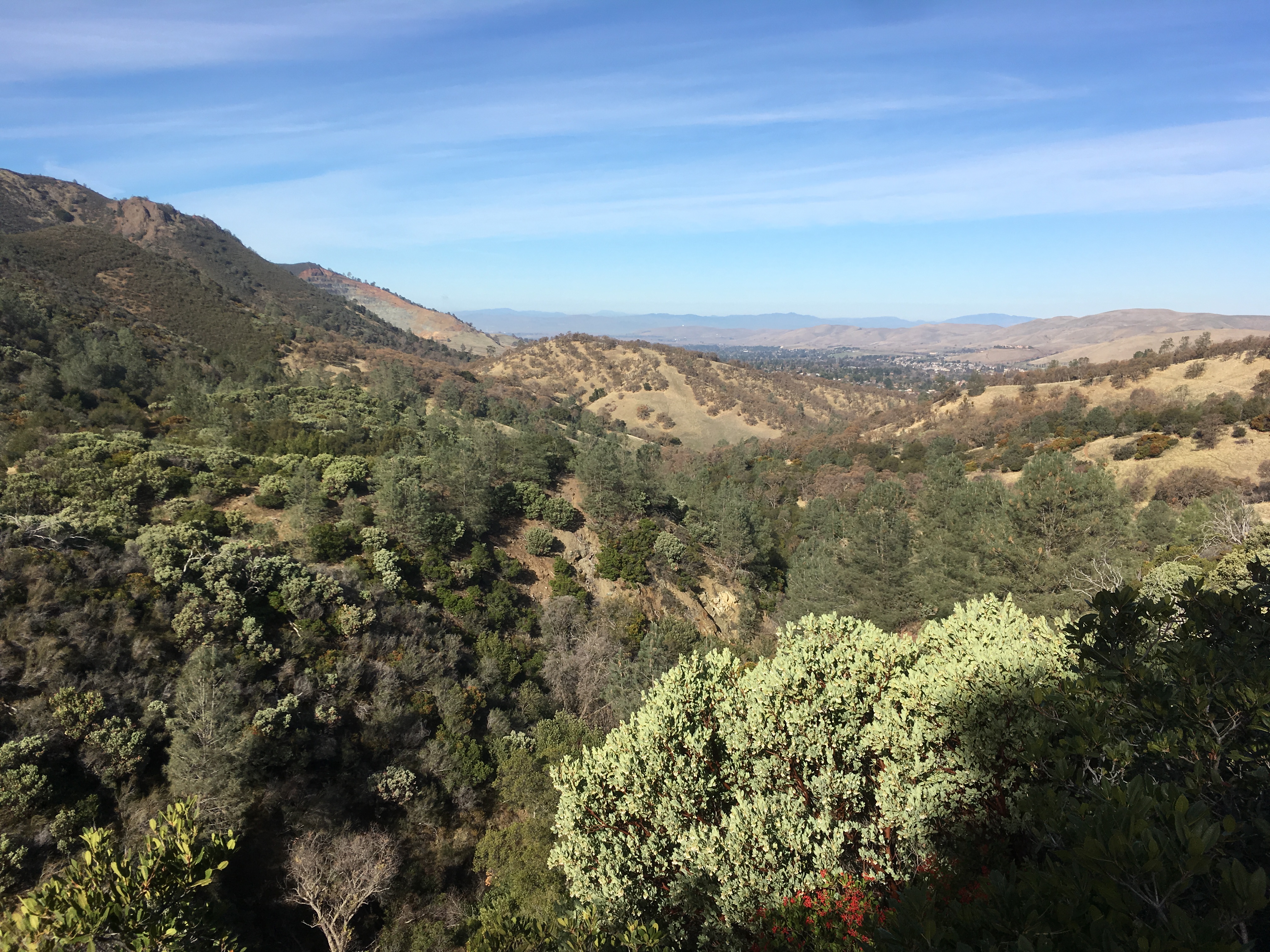The revelations of God have always taught that humans have an exalted station, far above what we naturally would consider for ourselves. The Hebrew Bible declares that humans have been made in the “image of God”, after God’s “likeness”. Islam further challenged humanity by saying- “Think thyself a puny form, when within thee we have unfolded the universe”. Baha’u’llah revealed in the Hidden Words that God has “engraved on thee My image and revealed to thee My beauty”.
All the revelations have defined humans as primarily spiritual and secondarily material. But is this just an outworn idea, a relic of times when we didn’t understand the world? This is not a trivial question as the answers have real-world implications. Are we like animals, engaged in “survival of the fittest”, where it is regarded as almost virtuous to ensure that the strong survive? A world leader of a respected country recently tweeted a statement reflecting his support of this idea, and one worries if these beliefs color his relationship with other nations and peoples. Survival of the fittest is what we get when we derive our conception of ourselves from our current understanding of the natural world. It was certainly part of the justification of slavery and the imperialist subjugation of native peoples by their colonizers in the 19th century. It remains a background idea in many nationalist ideologies today.
Baha’u’llah’s revelation addresses the nature of human beings more comprehensively than any previous revelation. The insights are found in both the writings of Baha’u’llah and ‘Abdu’l-Baha’, his son. When Abdu’l-Baha’ came to America and Europe in 1912, he was faced with audiences that were reeling from remarkable growth of knowledge in the previous 100 years, ideas that challenged their belief in religion and themselves. Materialism was increasingly ascendent as a philosophy and Darwinism with its survival of the fittest social paradigm was challenging sacred beliefs about the nature of humanity. In order to explain His Father’s teachings within that context, ‘Abdu’l-Baha used several approaches to explain how human beings were fundamentally spiritual and not material.
At a talk at Columbia University, ‘Abdu’l-Baha addressed this directly. He first framed it by stating that “if we look at perceiving eye upon the world of creation”, we can classify existing things in specific kingdoms- mineral, vegetable, animal, and human. In the evolution of matter, they also unfolded in this order. In humans, there is a quality that is “absolutely absent” in the lower kingdoms- “the power of intellectual investigation and science”. He then pointed out that all other kingdoms are captives of nature, saying- “The infinite starry worlds and heavenly bodies are nature’s obedient subjects. The earth and its myriad organisms, all minerals, plants, and animals are thralls of its dominion. But man through the exercise of his scientific intellectual power can rise out of this condition…and be the breaker of the laws of nature”. ’Abdu’l-Baha’ then reasons that we can do this because humans are endowed with a power of which nature is deprived. Although “in body a part of nature, nevertheless in spirit possesses a power transcending nature, for if he were simply a part of nature and limited to material laws, he could possess only the things which nature embodies.” That power is the “faculty of intellectual investigation into the secrets of creation, the acquisition of higher knowledge, the greatest virtue of which is scientific enlightenment”.
‘Abdu’l-Baha’ further makes the point that there are forces that exist in the world, gravity for instance, that we know only by their effects. We don’t know what gravity is, but we know it exists by the force it exerts on objects. He likens the essence of humans as being similar- we possess an unseen part of ourselves that is not part of nature- namely our soul with its mind and rationality- that can only be known by its effects. In comparison to the powers that nature manifests in the lower kingdoms, the rational mind- an inherent property of our soul- is “supernatural”, as in outside of nature. It is the source of our creativity, free will, and intelligence- all of which are not manifest in nature, which is wholly subservient to deterministic laws.
This can be a subtle argument, as many of us are so used to thinking in material terms. The natural tendency is to think that we just have more evolved biological structures- bigger brains- than animals and the rest of nature. But ‘Abdu’l-Baha’ is not pointing to a quantitative difference between humans and nature but a truly qualitative one. Nature- minerals, vegetables, animals- have no “mind”- they follow the deterministic natural laws and their own instincts and are completely subservient to them.
Animals are magnificent, undoubtedly, and can be clever, but their perceptions and reality is confined to material things. They cannot abstract beyond material things, and therefore their entire thought universe is confined to what they see, feel, and hear. It’s the quality humans possess of being able to abstract from the concrete that ‘Abdu’l-Baha’ says is qualitatively different from anything in nature and sets humans apart. Humans do science using abstract principles and derived laws, base their civilization on abstract moral principles like justice and equality. Indeed, we live in an abstract thought universe as much as we live in a material one.
To help us change our perspective, ’Abdu’l-Baha further pointed out that, for a vegetable, an animal is “supernatural”, in that the plant would judge the world from its perspective, regarding only what it knows to be “natural” to be part of the vegetable world. To understand humans only in terms of the lower kingdoms- as Darwinists were wont to do- was to limit one’s conception of humans to an unreasonable degree, as it was evident that humans possessed qualities of which the lower kingdoms were deprived.
It was also to limit the “natural world”, which in reality was more than just the lower kingdoms.
What materialist philosophers called “nature”- and ‘Abdu’l-Baha’ uses the same meaning in the quotes above- was the world of minerals, vegetables, and animals. We still use the term in the same sense today. But for ‘Abdu’l-Baha’ (and religious people generally), the broader “natural world” also includes entities like God- the intelligence that underlies all reality- and even the Manifestations of God- that are levels of consciousness far above even humans. The natural world then, is one that consists of both material and abstract intellectual realities, and not just matter itself.
Undoubtedly, humans have an animal nature- one that drives our desire for food, sex, and other basic instincts and emotions- and it’s not wrong to think of humans in those terms, but it is wrong if we limit humans to those terms. The situation is similar in the lower kingdoms. A tree has its roots in the mineral kingdom, and feeds and sustains itself by exploiting that kingdom, though it is part of the vegetable kingdom with powers and properties inconceivable to the mineral. Humans have their roots in the animal kingdom, but our true reality is a kingdom above that, and we are only truly human when we manifest that which is characteristic of our essence, which is “spiritual” in relationship to the animal, namely, the qualities of our soul- rationality and moral idealism.
How do we reconcile this perspective with our modern scientific worldview? We first need to recognize that science has no explanation for human consciousness, or even animal consciousness for that matter. Nobody has any idea how a collection of atoms, no matter how cleverly constructed or how long it took, could manifest the ability to do abstract thought and be self-conscious. There are certainly a lot of speculative theories, but the only thing all those theories have truly proven is how clever humans can be in coming up with them.
The general approach is that humans are a product of a Darwinian evolutionary process, as that is the consensus theory for how biological evolution occurred. Within this paradigm, animals and humans are like “molecular machines” that have grown more complex and sophisticated as they have- through the mechanism of random variation and natural selection- responded to environmental challenges. In this scheme, we think of the evolution of humans like we would the evolution of automobiles through the decades of the 20th century, progressively sophisticated machines that are the sum of their parts.
The Baha’i teachings suggest that we should think of evolution as being more like the evolution of musical instruments. As instruments became more sophisticated, both in the range of pitches as well as their overall sound, they had the ability to play more sophisticated pieces of music, like, for instance, Beethoven’s 9th symphony. But the 9th symphony is not contained in the musical instruments themselves. It is an abstract reality, ultimately a mathematical relationship between pitches of sound. The music is therefore an abstract thing being played on a set material instruments, producing the coherent reality we know as an orchestral performance. Until the instruments evolved to a certain level of sophistication, the 9th symphony could not manifest itself in the world, even though it always potentially existed within the mathematical relationships of the universe. Human being are like that symphony orchestra. We are in essence an abstract reality that manifested itself in the natural world when the biology had evolved to the point where it could manifest such powers.
If we did not know a priori how orchestras work, it would be very difficult to figure out this relationship if we only had access to the instruments themselves, a situation akin to our study of human anatomy and physiology. After all, when a string breaks, the music stops, so the music must be in the cello, right?
This simple analogy, taken from the reality of our natural world, suggest a fundamentally different way to think about human beings and indeed the world itself. Evolution is the process of unfolding ever more sophistical biological structures, capable of expressing higher and higher levels of abstract reality, higher and higher levels of intelligence.
It is this abstract essence that human beings are fundamentally made of. Baha’u’llah described our abstract soul as “a sign of God, a heavenly gem whose reality the most learned of men hath failed to grasp, and whose mystery no mind, however acute, can ever hope to unravel”. Similar to God, our own inner reality- our soul- is not explainable in material terms and the limited ways people think. Concerning the rational faculty within every human being, Baha’u’llah said something remarkable-
Consider the rational faculty with which God has endowed the essence of man…Wert thou to ponder in thine heart, from now until the end that hath no end, and with all the concentrated intelligence and understanding which the greatest minds have attained in the past or will attain in the future, this divinely ordained and subtle Reality, this sign of the revelation of the All-Abiding, All-Glorious God, thou wilt fail to comprehend its mystery or to appraise its virtue. Having recognized thy powerlessness to attain to an adequate understanding of that Reality which abideth within thee, thou wilt readily admit the futility of such efforts as may be attempted by thee, or by any of the created things, to fathom the mystery of the Living God, the Day Star of unfading glory, the Ancient of everlasting days. This confession of helplessness which mature contemplation must eventually impel every mind to make is in itself the acme of human understanding, and marketh the culmination of man’s development
There is a passage in the Quran that similarly expresses the soul to be something we can only understand in limited terms- “And they ask you, O Muhammad, about the soul, Say: The soul if of the affair of my Lord, and mankind hath not been given knowledge of it, except a little”.
In another passage, Baha’u’llah describes how the human essence- our soul- has capacities that are only partially manifest in this world.
Verily I say, the human soul is, in its essence, one of the signs of God, a mystery among His mysteries. It is one of the mighty signs of the Almighty, the harbinger that proclaimeth the reality of all the worlds of God. Within it lieth concealed that which the world is now utterly incapable of apprehending.
It should be noted that, in presenting these issues, neither Baha’u’llah nor ‘Abdu’l-Baha’ are asking us to believe in things that we would regard as exotic. There is no superstition here. They are simply framing the facts we know from our world, the reality we all experience, in a different light. Humans do objectively have intelligence that is unexplainable in the terms of nature. We do objectively have spiritual and moral qualities that are distinct from nature, and faith allows us to open doors within ourselves and find treasures that are expressed in our societies in very real ways. Revealed religion has objectively uncovered spiritual and moral capacities within people that have laid the basis of modern civilization, the effects of which are apparent everywhere- in our churches, our synagogues and mosques, even our Constitutions. And belief in God- even belief in the soul- is native to our consciousness. Everything Baha’u’llah and ‘Abdu’l-Baha describe is part of the empirical reality of our world- part of the experience of almost every human on the planet. They are just giving us a more profound appreciation and understanding of these realities, and discouraging us from being captives of our limited conceptions, materialistic or otherwise.
With this definition of human beings, Baha’u’llah then encourages us to rise up to our full potential-
O Son of Spirit! I created thee rich, why dost thou bring thyself down to poverty? Noble I made thee, wherewith dost thou abase thyself? Out of the essence of knowledge I gave thee being, why seekest thou enlightenment from anyone beside Me? Out of the clay of love I molded thee, how dost thou busy thyself with another? Turn thy sight unto thyself, that thou mayest find Me standing within thee, mighty, powerful and self-subsisting.
“All men have been created to carry forward an ever-advancing civilization. The Almighty beareth Me witness: To act like the beasts of the field is unworthy of man. Those virtues that befit his dignity are forbearance, mercy, compassion and loving-kindness towards all the peoples and kindreds of the earth. Say: O friends! Drink your fill from this crystal stream that floweth through the heavenly grace of Him Who is the Lord of Names. Let others partake of its waters in My name, that the leaders of men in every land may fully recognize the purpose for which the Eternal Truth hath been revealed, and the reason for which they themselves have been created.”
It can truly be said that all the teachings of Baha’u’llah derive from this concept of what a human being really is. Because we are fundamentally spiritual, all considerations of differences based on race, ethnicity, gender, class- and every other superficial element- are subsidiary to the unity based on our common spiritual essence-
“O Childen of Men! Know ye not why We created you all from the same dust? That no one should exalt himself over the other. Ponder at all times in your hearts how ye were created. Since We have created you all from one same substance it is incumbent on you to be even as one soul, to walk with the same feet, eat with the same mouth and dwell in the same land, that from your inmost being, by your deeds and actions, the signs of oneness and the essence of detachment may be made manifest. Such is My counsel to you, O concourse of light! Heed ye this counsel that ye may obtain the fruit of holiness from the tree of wondrous glory.
The ethics and laws of Baha’u’llah are themselves all intended to bring out these qualities in us. For instance, Baha’u’llah prohibited alcohol and drugs and the explicit purpose for this prohibition is that these substances impair our intelligence.
“It is inadmissible that man, who hath been endowed with reason, should consume that which stealeth it away. Nay, rather it behoveth him to comport himself in a manner worthy of the human station…”
Throughout His revelation, Baha’u’llah encourages us to act on the basis of our higher nature- that which makes us distinctly human, our rationality and commitment to abstract moral and spiritual ideals. He is uncovering for us what it is to be truly human and providing the means whereby we can express that most fully.
”The Purpose of the one true God, exalted be His glory, in revealing Himself unto men is to lay bare those gems that lie hidden within the mine of their true and inmost selves.“
Photo by Chayene Rafaela on Unsplash








